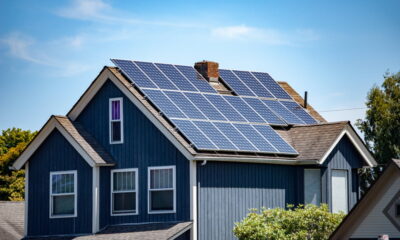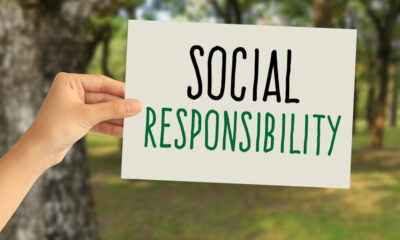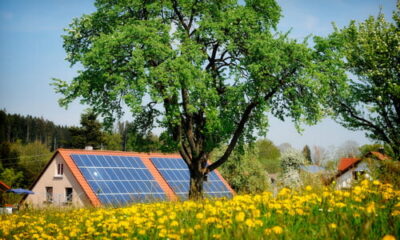

Energy
Why Aren’t More People Becoming Energy Efficient? These 3 Reasons
An energy-efficient lifestyle seems like a no-brainer. First, it’s more cost-efficient; though some adoptions may require an upfront investment, they usually pay for themselves given enough time. Second, it’s better for the environment; adopting “green” measures means doing your part to preserve our atmosphere and environment for future generations. Third, it usually lends itself to a higher quality of life; less noise and less pollution are just the beginning.
So why is it that there are still so many people who refuse to adopt environmentally friendly changes?
There are three main perceptions responsible for this:
1) One individual doesn’t make a difference. The first major obstacle you’ll encounter is the idea that one individual’s actions don’t make a difference. If you, and you alone, buy a hybrid car and start using fewer disposable products, nothing will dramatically change in the quality of the environment. This is the same reason so many people abstain from voting as well.
But we know from experience that one individual does make a difference. It’s why supervisors of major corporations use time-tracking software to monitor individual progress. It’s why football teams select individual star players to comprise their lineups. It’s why people sign massive petitions. Put simply, it’s true that if one individual makes a choice, it won’t amount to much, but if multiple individuals make a choice, it amounts to everything. To overcome this hurdle, people must be convinced that their decisions matter, and that we’re all in this together—like players on a team or employees in a corporation.
2) Complacency is easier than change. The next obstacle is that of complacency. Our brains are wired to avoid change; habits and consistency make for safer environments, and that evolutionary biological function has stuck with us far longer than it should have. Today, people will resist any change, even a positive one, if it means keeping things exactly the way they are now (even if “now” isn’t good).
You can see this reasoning anywhere you look, not just in environmental adoption. It’s why people stay at lousy, depressing jobs, or remain in unhealthy long-term relationships. If you’ve ever tried to talk someone into leaving a bad job or a bad relationship, you know how hard this obstacle is to overcome. Unfortunately, there’s no easy way to do it; all you can do is make convincing, logical arguments for the benefits of the change, and use baby steps to lead into bigger changes.
3) There are too many options. There’s no shortage of options when it comes to going green. In fact, there are hundreds of ways, big or small, that people can become more environmentally friendly. For the environmentalist, this is fantastic—it means you’ll never run out of new ways to make a difference. For the reluctant adopter, this is a nightmare—you have no idea where to start, or what to do when you get there.
The key to overcoming this obstacle is limited prioritization. Instead of trying to explain all the details of all the ways someone could go green, start with something simple and easy, and don’t try to push anything else. Once that step has been adopted, you can move on to something a little bigger or a little more complicated. Baby steps are the ways societies change and grow, so don’t try to do too much at once.
If we want to become “greener” as a society, with more people adopting environmentally friendly strategies, the solution isn’t to force these strategies down people’s throats, or continue to reiterate how important or effective they are. Instead, we need to understand why people might refuse to adopt these strategies, and work to overcome those perceptual blocks. The only way to convince people to change is to understand where they’re coming from in the first place.


 Environment12 months ago
Environment12 months agoAre Polymer Banknotes: an Eco-Friendly Trend or a Groundswell?

 Features11 months ago
Features11 months agoEco-Friendly Cryptocurrencies: Sustainable Investment Choices

 Features12 months ago
Features12 months agoEco-Friendly Crypto Traders Must Find the Right Exchange

 Energy11 months ago
Energy11 months agoThe Growing Role of Solar Panels in Ireland’s Energy Future





























